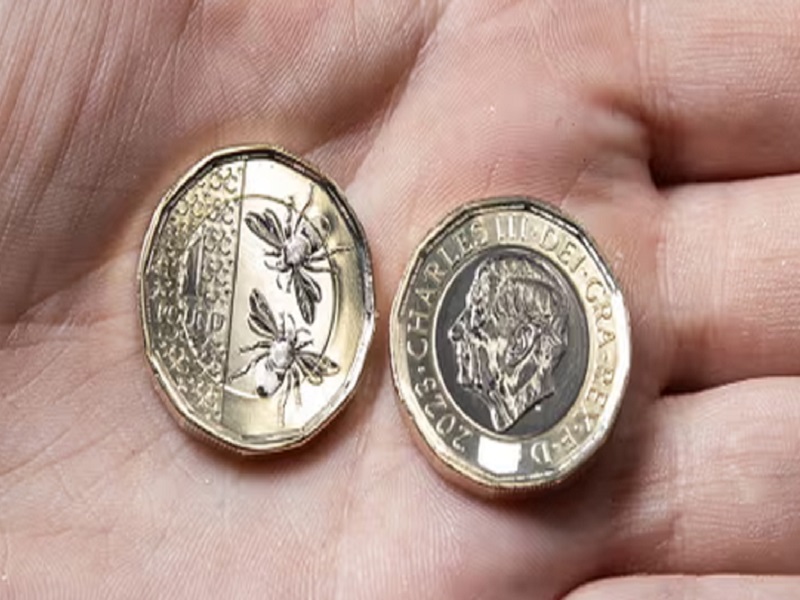If you are one of the million of Nigerians with high blood pressure, lifestyle changes like exercising regularly, reducing alcohol, keeping a healthy diet and sleeping seven to eight hours per day will make a difference.
In fact, a healthy diet rich in fruits like tropical almond fruits can make a big difference to lower the blood pressure. Almond fruits, including its nuts, are packed with magnesium, a mineral that plays a crucial role in regulating blood pressure.
In a new study, researchers at the Federal University of Technology, Akure (FUTA), corroborated that tropical almond fruits are a promising part of a healthy diet to alleviate hypertension. It is the April edition of the journal, Biomarkers.
Hypertension (high blood pressure) is when the pressure in the blood vessels is too high (140/90 mmHg or higher). It is considered severe if the pressure is above 180/120. It is common but can be serious if not treated. People with high blood pressure may not feel symptoms. Over time, if untreated, it can cause health conditions such as heart disease, kidney failure and stroke.
The study investigated the effect of Almond fruits on factors like blood pressure, angiotensin-1-converting enzyme (ACE) and oxidative stress biomarkers in 42 hypertensive Wistar rats. The hypertensive rats were treated with tropical almond fruit-supplemented diet and sildenafil citrate for 21 days. The blood pressure was measured and cardiac homogenate was prepared for biochemical analyses.
Sildenafil citrate, sold under the brand name Viagra, among others, is a medication used to treat erectile dysfunction and pulmonary arterial hypertension.
Angiotensin-converting enzyme or ACE controls blood pressure by regulating the volume of fluids in the body. Also, NO and H2S are gases that help blood vessels dilate and, in turn, reduce blood pressure.
The research found that they significantly increased the amount of antioxidants in the bloodstream, reduced blood pressure and improved blood flow.
From the study, it was concluded that treatment with Terminalia catappa fruits-supplemented diets and sildenafil citrate lowered blood pressure and modulated ACE, arginase and PDE-5 activity improved NO and H2S levels, as well as antioxidant status.
In Nigeria, the tropical almond fruit (Terminalia catappa) is commonly called fruit or almond. Other common names are beach almond, sea almond, false kamani, Malabar almond, ‘Abrofo Nkate’ in Ghana, “Ebelebo” among the Binis, “Baushe” in Hausa and “Igi-furutu” in Yoruba.
Tropical almond is grown for the fruit, as a shade tree or as an ornamental plant. The drupe of its edible fruit changes from green to yellow or red when they ripe. The outer flesh of the fruit is high in tannic acid. There is a shell inside the drupe which contains a nut that is edible. The nut or kernel can be sun-dried and can yield bland, yellow oil.
In traditional medicine, the leaves, fruit and bark are used for treating dysentery, leprosy, scabies, headache, stomach ache, indigestion and furred tongue. Its young leaves are used in South America to treat colic.
Almonds are a rich source of magnesium, a mineral that plays a crucial role in regulating blood pressure. Studies have shown that people who consume more magnesium have lower blood pressure levels than those who don’t. Almonds are also high in monounsaturated fats, which can help reduce inflammation and improve blood flow.
Recently, almond fruits have been advocated as a promising part of a healthy diet to also improve weight and the lipid profile. Many studies reported almond’s role in reducing levels of triglycerides, low density lipoprotein-cholesterol (LDL) and total cholesterol.
Other foods that have been shown to help lower blood pressure are foods rich in potassium like avocado, watermelon, potatoes, spinach and bananas; fatty fish like salmon or mackerel; pomegranate, olive oil, beet juice and dark chocolate.
Studies have shown that eating omega-3-rich fish, like salmon or mackerel, or taking fish oil pills, can decrease blood pressure and prevent the onset of hypertension.
A 2017 meta-analysis of eight clinical studies showed that pomegranate juice has a significant impact on blood pressure. Also, anthocyanins, the compound that gives blueberries their blue colour, may have blood pressure reducing properties, according to recent studies.
In one older study, the researchers looked at data for over 34,000 people with hypertension over 14 years. Those with the highest intake of anthocyanins — mainly from blueberries and strawberries — had an eight percent lower risk of high blood pressure than those with a low anthocyanin intake.
Also, drinking beet juice may reduce blood pressure in the short and long term, because it contains dietary nitrate.
A 2015 study found that people with hypertension who drank 250 milliliters or about one cup of red beet juice every day for 4 weeks had lower blood pressure. The researchers reported an average fall in blood pressure of 7.7/5.2 millimeters of mercury (mmHg) over a 24-hour period.
Watermelon contains an amino acid called citrulline. The body converts citrulline to arginine and this helps the body produce nitric oxide, a gas that relaxes blood vessels and encourages flexibility in arteries. These effects aid the flow of blood, which can lower high blood pressure.
SOURCE; TRIBUNE































































